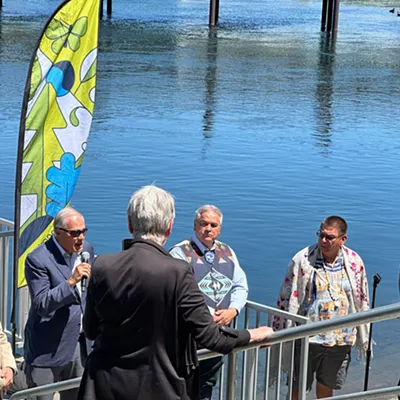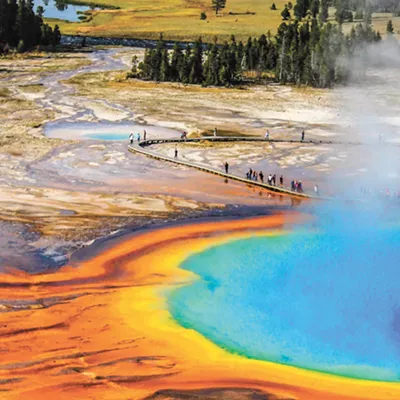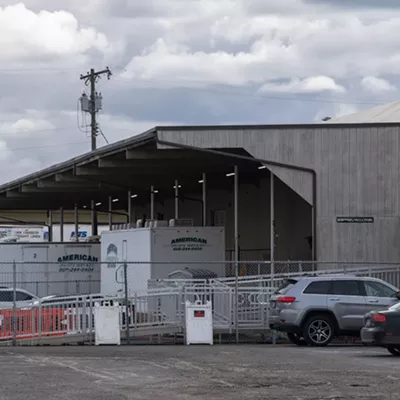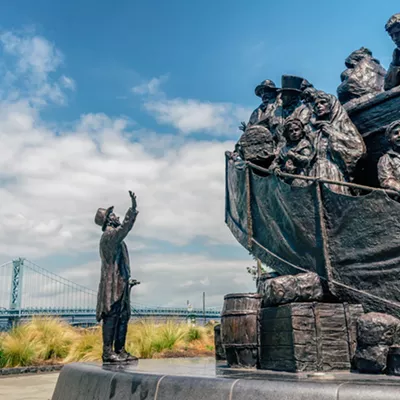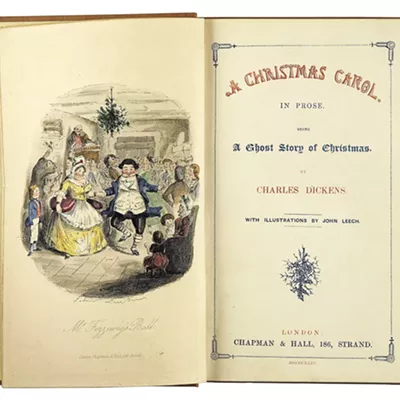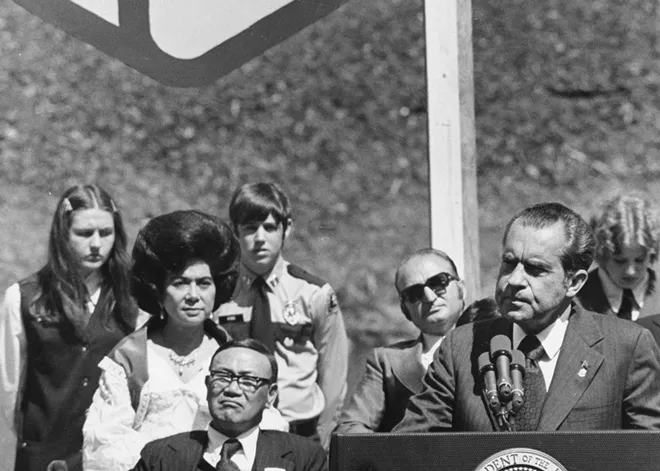
It was a shimmering spring day with wisps of cirrus clouds against azure Maxfield Parrish skies. Spokane was basking in its Salish name: Sp'q'n'i, "Children of the Sun." On May 4, 1974, provincial Spokane joined Seattle and Montreal, cities that hosted world's fairs.
In "Spokane Motel Blues," Tom T. Hall laments in 1973: "I don't know what I'm doing here, I could be someplace else." With the fair and new "Near Nature" branding, Spokane morphed from blue highway anonymity into a vacation destination. Sure, Spokane remained more Kansas than Oz, yet for seven months in 1974 the fair and the falls glistened like an Emerald City.
President Richard Nixon opened the fair from a floating stage in the Spokane River. "There were boos mixed with the cheers, but generally he was warmly, if not tumultuously received in this conservative, usually Republican city in eastern Washington," the New York Times reported on May 5, 1974.
From the stage that day, Nixon gave no hint of the cancer metastasizing on his presidency. Responding to a congressional subpoena one week earlier, Nixon released redacted transcripts of audiotapes of his White House conversations of his Committee to Re-Elect the President's (CREEP) clandestine funding of the 1972 botched burglarizing of the Democratic National Committee headquarters in the Watergate Hotel.
Hunter S. Thompson, godfather of gonzo journalism, said of Nixon, "When the going gets weird, the weird turn pro." With apologies to Dickens, it was the weirdest of times. That is, until Donald Trump parlayed his impulse-control challenged, bamboozling reality TV bully into a political cult. After all, in The Selling of the President (1968), Joe McGinniss observed that politics are about marketing; his iconic book jacket imposed Nixon's face on a pack of cigarettes. To wit, Nixon's press secretary was a PR guy from Disney.
Thompson on Nixon: "He could shake your hand and stab you in the back at the same time." Trump administration refugees know this m.o. Apostate Republican political consultant Rick Wilson once said, "Richard Nixon is the modern exemplar of a dark and vindictive president. President Trump would be Nixon minus the keen intellect and work ethic." A tale of two tyrants.
Congress again subpoenaed all tapes; Nixon countered that they were protected by executive privilege. On July 24 in unanimous decision in Nixon v. U.S. the Supreme Court ruled that the president did not have executive privilege of immunity from congressional subpoenas, thus Nixon was enjoined to relinquish the tapes to Congress. In 1977 Nixon maintained, "When the president does it, it's not illegal." In 2022 citing Nixon, the conservative Supreme Court rejected Trump's claim that his records were protected by executive privilege from the Jan. 6 Committee's scrutiny.
Four days after Nixon's Expo address, hearings for his impeachment commenced; with the high court's Nixon decision, the House approved articles of impeachment on July 27. Nixon was never impeached. He resigned on Aug. 9, the only president to do so. (Suggested reading: Theodore White's Breach of Faith: The Fall of Richard Nixon.)
Other sources of fear and loathing in 1974: intensifying race rancor, the Vietnam fire on the lake and a polarized body politic. While Nixon was extricating U.S. ground troops from Vietnam, he assaulted Cambodia with 2.8 million tons of bombs, a policy manufactured by his Machiavelli, Henry Kissinger. This was Nixon's "Peace with Honor" strategy. (How did Nixon reconcile his Quaker faith with the violence he unleashed on Indochina? Today as perplexing, why do some Christians venerate an unrepentant, serial sinner with a messiah complex?) And Nixon played the "China card" normalizing U.S.-Sino relations, compelling the Soviet Union to pursue detente with the U.S. thus inducing the Soviets to exhibit at Expo.
Expo's Iranian exhibition was an ostentatious temple revering the Shah of Iran. In 1953, the CIA instigated a coup to overthrow the first democratically elected government in the Middle East because the newly elected prime minister nationalized foreign-controlled oil in Iran. The shah terrorized Iranian civilians and restored U.S. oil interests. And in response to U.S. support for Israel in the 1973 Yom Kippur War, OPEC embargoed oil, quadrupling prices, crippling domestic manufacturing and causing supply shortages with mile-long gas lines.
Reacting to surging public discontent and armed with a 1972 landslide election mandate based on a "law and order" platform that resonated with the White, suburban Silent Majority, Nixon exacted vengeance on his enemies — Black "radicals" and anti-war activists. And in the first War on Drugs barrage, Nixon concocted Operation Intercept to interdict marijuana at the Mexican border, spraying crops with the herbicide paraquat (linked to Parkinson's disease) and even enlisting Elvis as the poster child for the battle.
Nixon is justly vilified for his sins against the republic, yet at Expo he extolled his administration's enactment of the first clean air and water quality standards "that this magnificent Expo will leave as a legacy." He was the first president to enact substantive environmental legislation: creating the Environmental Protection Agency (EPA), passing the Endangered Species Act, Clean Water Act and Clean Air Act, reducing auto emissions, eliminating lead and asbestos from products, targeting polluted sites, protecting wetlands, and eliminating many pesticides. How far we have strayed from moderation and compromise that Republicans like Nixon seem liberal compared to today's Republican extremists.
The assault on Nixon's environmental achievements began when Ronald Reagan slashed EPA budgets, reduced enforcement, and opened public lands to mining, oil exploration and grazing. For three decades, regulation-averse congressional Republicans have sought to eliminate the EPA. Today the radically conservative Supreme Court majority has seriously circumscribed environmental regulations. Trump rolled back nearly 100 clean air, water, wildlife and toxic chemical policies. Using executive orders, Biden restored many of those policies, but a second Trump administration would undoubtedly reverse Nixon's — and Expo's — environmental legacies.
During the reign of President George H.W. Bush, Hunter Thompson despaired: "Where is Nixon now that we need him?" ♦
John Hagney taught high school and college history for 45 years. He was a U.S. Presidential Scholar Distinguished Teacher. His oral history of Gorbachev's reforms was the first work on the subject and has been translated into six languages.





